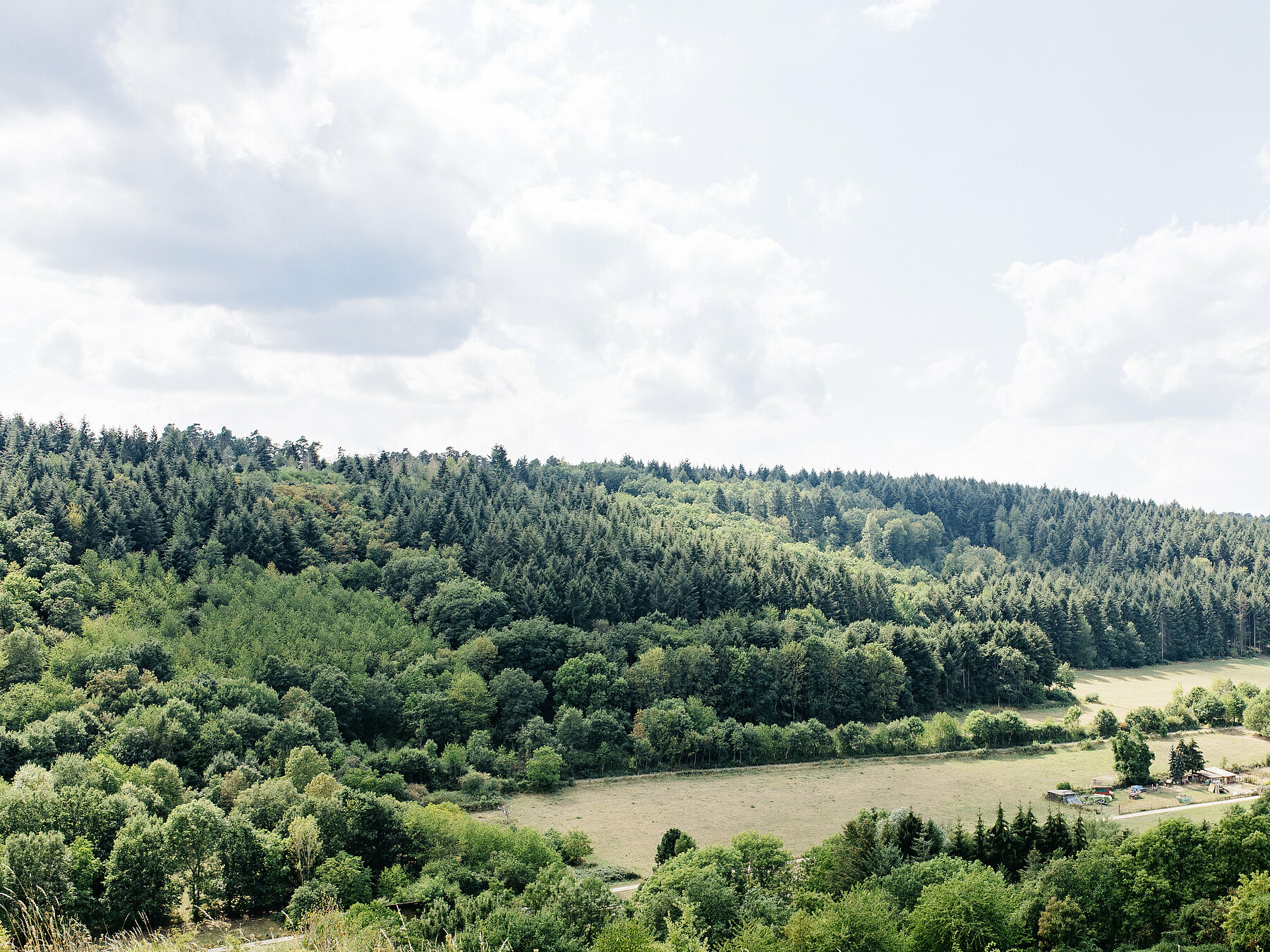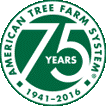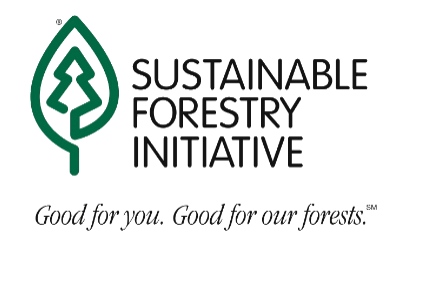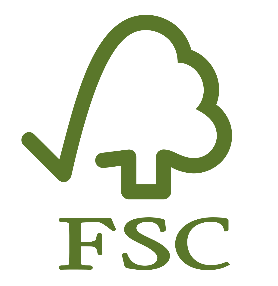
Forestry investments
Global Forest Fund
Salm-Salm offers professional investors the opportunity to participate in the benefits of a globally diversified forest portfolio via the Salm-Salm Global Timber Fund. Forests significantly strengthen a portfolio, especially in the medium and long term. The growing world population and the associated need for living space are continuously increasing the demand for wood. Wood is an ideal substitute for energy-intensive building materials such as steel or concrete. Wood also serves as a raw material for numerous other products such as furniture, paper and tissue. Land offers additional diversification, very low correlations with the most important other asset classes and high inflation protection. Above all, however, forests are a green, CO2-neutral and sustainable investment in the truest sense of the word. For this reason, forests are an integral part of the capital investments of institutional investors and families in many regions of the world.
Salm Global Timber Fund SICAV-RAIF, SCSp
Key Facts
The Salm Global Timber Fund aims to build up and sustainably manage a diversified portfolio of commercial forests in the world's most attractive timber markets. The target regions for forest purchases are predominantly the USA and, to a lesser extent, Oceania and Europe. As an investment advisor, Salm-Salm is responsible for the search, evaluation, purchase, long-term and sustainable management, as well as the sale of the forests at the end of the fund term.
Key Facts
- Strategy: Development and sustainable management of a diversified portfolio of commercial forests
- Target regions:
- USA: 60 - 80 % (Pacific Northwest, Northeast, Southeast)
- Oceania: up to max. 20 % (New Zealand)
- Europe: up to max. 20 % (Central Europe, Scandinavia)
- Genuine acquisition of ownership of the forest areas - no leases
- No use of debt capital - equity only
- Target IRR: 5 - 7% (net)
- Target distribution: Ø 2 % p.a.
- Term: 15 years + extension option
- Target equity size: USD 150 million
- SFDR classification: Art. 9
- Final closing: Q4/2023
Investment Strategy
Salm-Salm's investment strategy focuses on the precise selection of forests. High-quality forests in the strongest local timber markets are selected in an in-depth analysis. Salm-Salm only buys forests in countries that have the highest standards of property protection. The local biological growing conditions, climate and forestry infrastructure also play a decisive role in the investment approach. In order to reduce risks, the portfolio is diversified into different climatic regions, sales markets, forest types, tree species and age classes. Biotic and abiotic risks are further reduced as part of operational management.
The main return drivers of a forest investment are biological growth and timber prices. For this reason, Salm-Salm relies on an “intensive management” strategy to optimize growth. Only forests in very strong timber markets are purchased. Opportunities to develop alternative sources of income are actively pursued in order to diversify revenues in forestry operations. Where possible and appropriate, value-add measures such as solar or wind projects and the generation of CO2 certificates are implemented.
Salm-Salm represents the owners through its presence in the area and direct contact with service providers. This is based on decades of experience in the agricultural and forestry sector with its own forestry and agricultural operations.
Sustainability & ESG
The concept of sustainability is over 300 years old and was originally defined in forestry: When managing forests, never use more than will naturally grow back (source: Hans Carl von Carlowitz). In order to provide proof of sustainable management, all forests managed by the fund are certified with an independent sustainability seal.
Forests are one of the largest carbon sinks on earth. Compared to old trees, however, young trees absorb significantly more carbon. This is due to higher growth rates. Regular harvesting of the stands, including the use of the wood as timber, as well as the subsequent reforestation of the areas, therefore ensures a high level of carbon sequestration. For this reason, the forests of the Salm Global Timber Fund are not set aside, but actively managed.
The top priority is that the forests are clean and healthy. Salm-Salm follows the precautionary principle, takes initiatives to promote greater environmental responsibility and encourages the development and dissemination of environmentally friendly technologies. Salm-Salm ensures environmental protection at all stages of management. This includes a proactive approach to avoid or minimize the consequences of accidents that may have a negative impact on the environment.
Child labor may not be used in any phase of management. Remuneration and social benefits of service providers must comply with the basic principles regarding minimum wages, overtime and legally prescribed social benefits. Forced or compulsory labor is not permitted. Salm-Salm, as well as service providers and affiliated companies, guarantee occupational health and safety in the workplace and support continuous development to improve the working environment.
Sustainable approach

Classified under Article 9 of the SFDR of the EU Disclosure Regulation

Classified under Article 9 of the SFDR of the EU Disclosure Regulation
Describes the way in which sustainability risks are included in investment decisions and the result of the assessment of the expected impact of sustainability risks on returns. As part of the investment process, Salm-Salm includes all relevant financial risks in its investment decisions and evaluates these on an ongoing basis.
Sustainability risk is defined as an event or condition in the environmental, social or corporate governance area, the occurrence of which could have a significant negative impact on the value of the investment. Sustainability risks can therefore lead to a significant deterioration in the financial profile, liquidity, profitability or reputation of the underlying investment. If sustainability risks are not already taken into account in the investment valuation process, they may have a material negative impact on the expected/estimated market price and/or liquidity of the investment and thus on the fund's return. Sustainability risks can have a significant impact on all known risk types and contribute as a factor to the materiality of these risk types.

American Tree Farm (ATF)

American Tree Farm (ATF)
American Tree Farm is a seal that was specially developed for privately managed American forestry operations. The guidelines are strongly based on those of PEFC (Program for the Endorsement of Forest Certification). In addition to certifying sustainable forest management, ATF employees support forest owners in the development of management plans and in general day-to-day business.

Sustainable Forestry Initative (SFI)

Sustainable Forestry Initative (SFI)
The Sustainable Forestry Initiative certifies the sustainable management of forests in North America. SFI is a solution-oriented sustainability organization that pursues the goal of protecting forests as habitats and at the same time safeguarding forestry and its supply chains in the long term through standards, data and public relations work.

Forest Stewardship Council (FSC)

Forest Stewardship Council (FSC)
The FSC aims to promote environmentally friendly, socially responsible and economically viable management of the world's forests. The forest should be safeguarded as an ecosystem and the long-term use of wood should be ensured. Work in the forest should be carried out safely and fairly. Forests worldwide are certified by FSC.
Are you a private or institutional investor?
Salm-Salm & Partner supports its investors with a broad range of information on asset allocation, investment management and market information. It is therefore important for us to know what type of investor you are. Professional investors according to §67 WpHG are institutional investors and distributors. To help us provide you with the right information, please select one of the following options. Translated with www.DeepL.com/Translator (free version)
Salm-Salm & Partner accepts no liability for the unauthorised use of the following content.